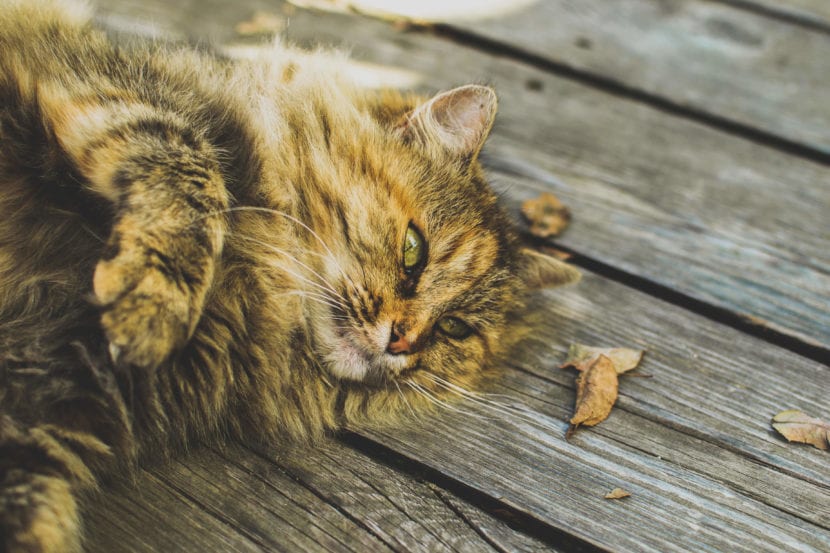
El cat It is an animal that, by nature, is solitary, that is, it does not live in family groups as the lion does. The mother cat takes care of her little ones for two months, sometimes a few days less if she sees that they can already take care of themselves, but no more. Already at that age the kitten has to face life alone, something that, as we know, is unfortunately a very difficult task when it is raised on the street. But when he goes to live with humans, he gets used to caresses, affection ... and company.
But the feline instinct endures. And that is what makes it a territorial animal, both indoors and outdoors. The question that surely haunts your head is: how do you defend what is yours? The answer is to leave signs that identify it as yours, and that in turn "repel" or keep out possible "invaders." The theme of feline marking it is very interesting, although sometimes it can bring us some other problem, as we will see below.
Feline pheromones
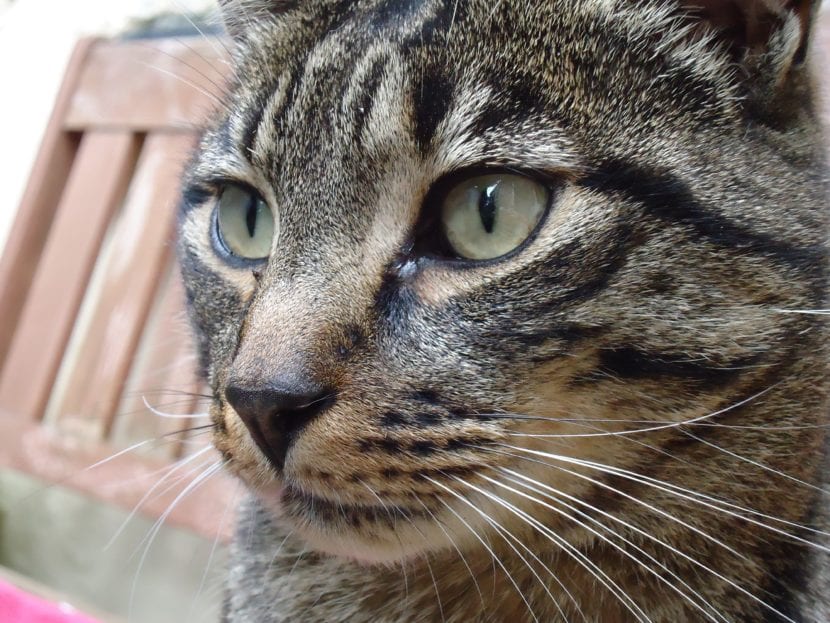
When we talk about feline marking we have to talk about the pheromones. These pheromones are substances that are produced with a clear objective. In the case of the cat, they are found in the urine, feces, pads, and on its face, more specifically on the cheekbones and chin. In addition, there are three types:
- Sex pheromones: which are the ones associated with heat.
- Pheromones of affection and tranquility: which are the ones that help them feel more relaxed.
- Territorial and marking pheromones: which are the ones that serve to mark its territory.
How does the cat perceive pheromones from other animals?
The cat, inside its mouth, above the palate has an organ called the Jacobson's organ that serves to perceive pheromones. If you detect a smell that is curious or strange, what you are going to do is lift your upper lip to inhale air a few times, raising your head. In this way, they suck the air and trap the particles towards this important organ, which is a gesture known as the Flehmen reflex (it means "wrinkling the upper lip" in German).
As we said, it is very important for the feline, since without it I would not know how to differentiate between males and females, or when they are in heat, so the risk that you end up having problems with other cats is very high.
How does the cat react when it perceives pheromones?
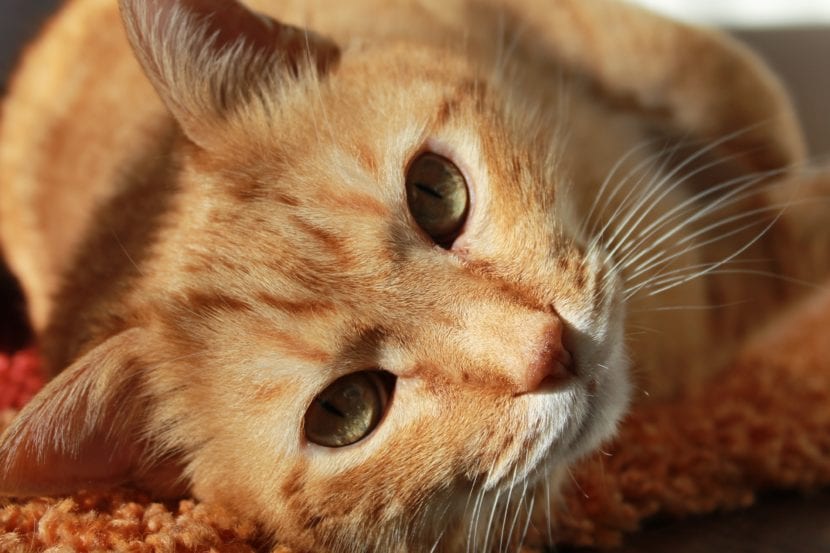
Pheromones are like "message carriers" secreted by many animals, such as cats. These substances can be divided into two large groups, which are the volatile when they are suspended in the air, and non-volatile, so the animal will have to go to the source of the smell to be able to perceive them. Those are perceived by the Jacobson Organ will provoke Physiological changes in the hairy one, they are slow but will last longer than those captured by smell, since both (Jacobson's organ and smell) have different neural pathways.
In fact, when the pheromone is taken up by the Jacobson's Organ, it is sent to the amygdala and the hypothalamus, two structures that are related to the emotional reactions. On the other hand, when it is captured by smell, it is sent to the cognitive areas of the brain through the olfactory pathways.
Thus, pheromones are always associated with changes in the cat's emotions.
How does the cat mark?
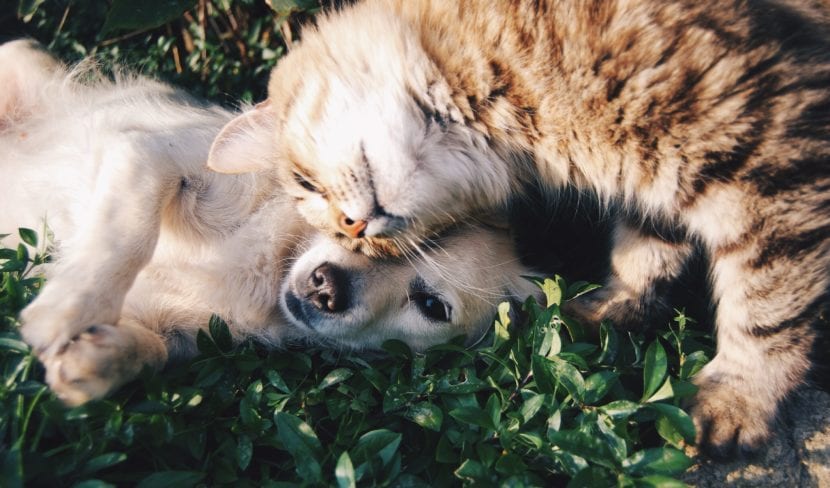
The cat has several ways of letting the rest of the world know that something is his or that he is in heat. Let's see it in parts:
Mark the territory
When a feline wants to mark its territory, we will see that it does the following:
- Leaves urine on what you think is yours, stretching the back legs well, raising the tail and expelling urine directly on the object.
- Rubbing his face, opening his mouth a little, for what he considers to be his or that is part of your family.
- Leaves fingernail marks on trees or furniture.
Zeal
If you are in heat, what you are going to do is:
- Female: rubbing himself on everything, furniture, people ..., and will also secrete pheromones in his urine.
- Macho: his behavior can change a lot, showing even a little violent if he lives with more cats. It will also leave urine around the corners.
Feline marking problems
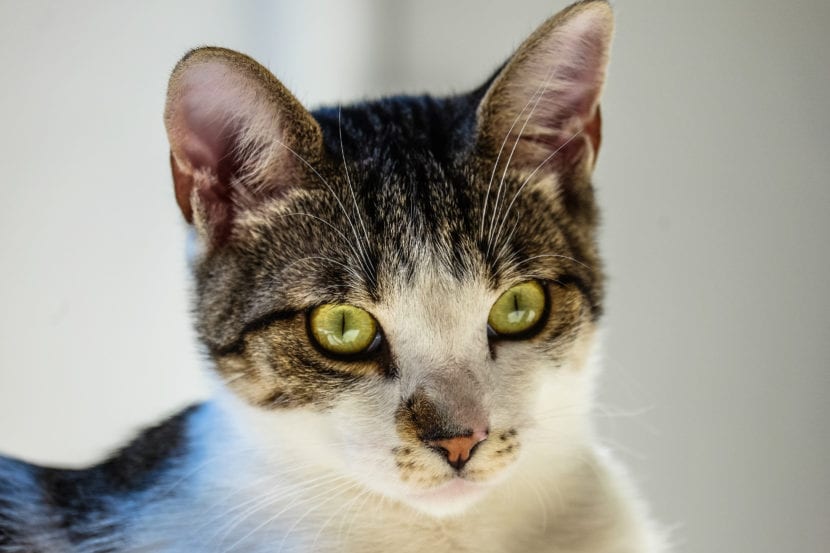
Let's now move on to the problems that cat marking can bring, and how to solve them:
Urinate in places not intended for it
It is one of the problems that most concern people who live with a 'whole' feline, that is, one that has not been neutered. Although this could be a symptom of disease if the urine is accompanied by blood, difficulty urinating, and / or loss of appetite, if our furry has not been taken to the vet to have its reproductive glands removed, we can almost assume that you are leaving your urine mark around the house to try to get the attention of a potential partner.
What to do? The ideal would be to castrate him before he has the first heat, that is, between 5 and 6 months, since this would avoid the problem. But if we have just adopted it or if it is already an adult, then it is also recommended to castrate it, but also you have to clean the house thoroughly using products that eliminate the remains and the smell of urine, such as Urine Off or Catit Bustit.
Spider where you don't have to
It does not matter if you have just bought a new sofa: your cat will surely release it if there is a new member at home or if they do not have a scratching post. This is an animal that, as we have seen, leaves its mark to defend its territory also with its claws, so it is very important that, if we do not want it to use the furniture as a scraper, let us provide you with one from the first day you get home.
Although, of course, it is never too late to give him one. If you see that it does not use it, you can do several things:
- Run your nails through it so that it imitates you.
- Leave him a treat on top of the scratcher so he has to go pick it up.
- Spray the scraper with catnip.
As you learn to use it, use a natural repellent to keep it away from furniture that you do not want it to use.
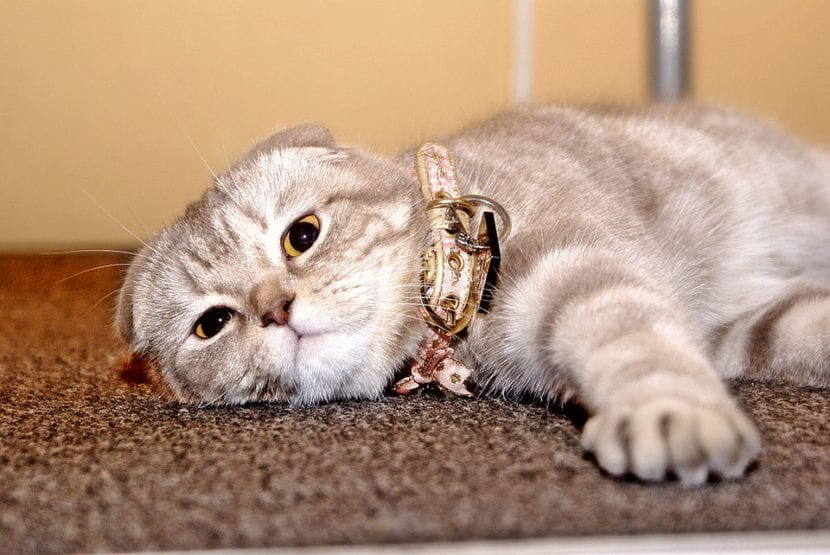
And with this we are done. What did you think of this topic? Have you heard of him?